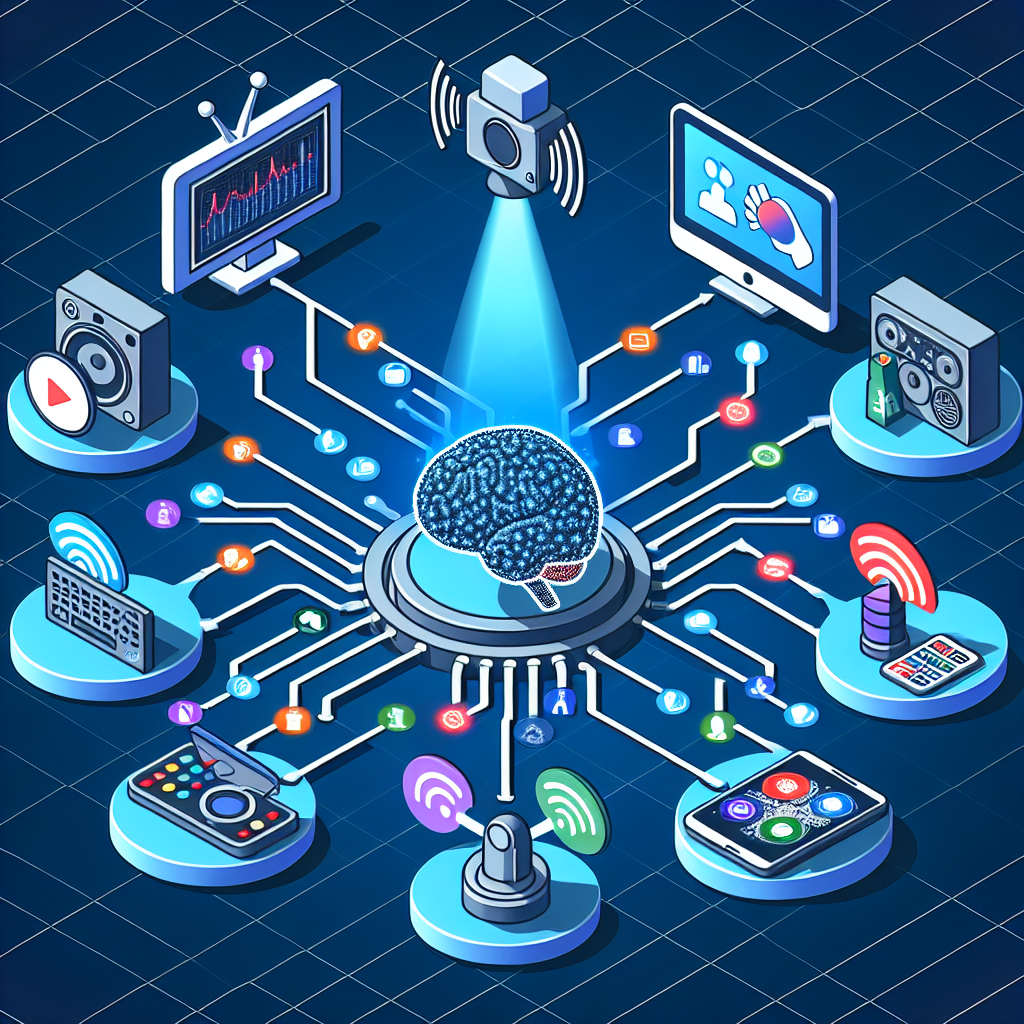In today’s digital age, businesses are constantly seeking ways to stay ahead of the competition and provide a seamless and personalized experience for their customers. One of the most effective ways to achieve this is by integrating artificial intelligence (AI) into omnichannel marketing strategies.
Omnichannel marketing is a strategy that focuses on providing a consistent and integrated experience for customers across all channels, including online and offline. By integrating AI into this multi-channel approach, businesses can automate and optimize their marketing efforts, personalize customer interactions, and improve overall customer satisfaction.
There are several ways in which AI can be integrated into omnichannel marketing strategies to enhance the customer experience and drive business growth. Here are some key ways in which AI can be leveraged in omnichannel marketing:
1. Personalization: AI can analyze customer data and behavior to create personalized experiences for each individual customer. By understanding customer preferences, AI can deliver targeted and relevant content to customers, increasing engagement and conversion rates.
2. Predictive Analytics: AI can use predictive analytics to forecast customer behavior and preferences, allowing businesses to anticipate customer needs and tailor marketing strategies accordingly. This can help businesses to better understand their customers and provide a more personalized experience.
3. Chatbots: AI-powered chatbots can provide instant customer support and assistance across multiple channels, including websites, social media, and messaging platforms. Chatbots can answer customer queries, provide product recommendations, and even complete transactions, enhancing the overall customer experience.
4. Marketing Automation: AI can automate various marketing tasks, such as email marketing, social media management, and content creation, saving businesses time and resources. By streamlining marketing processes, businesses can focus on more strategic initiatives and deliver a more consistent brand experience across all channels.
5. Customer Segmentation: AI can segment customers based on behavior, preferences, and demographics, allowing businesses to target specific customer segments with personalized marketing messages. This can help businesses to optimize their marketing campaigns and improve overall ROI.
6. Sentiment Analysis: AI can analyze customer sentiment and feedback across various channels, such as social media, reviews, and customer service interactions. By understanding customer sentiment, businesses can proactively address customer concerns and improve customer satisfaction.
7. Recommendation Engines: AI-powered recommendation engines can analyze customer data and behavior to provide personalized product recommendations to customers. By recommending products that are relevant to each customer, businesses can increase sales and customer loyalty.
Integrating AI into omnichannel marketing strategies can provide businesses with a competitive edge and help them to drive customer engagement, loyalty, and revenue. However, businesses should be mindful of the potential challenges and considerations associated with implementing AI in their marketing strategies.
Here are some common FAQs about integrating AI into omnichannel marketing strategies:
Q: What are the benefits of integrating AI into omnichannel marketing strategies?
A: AI can help businesses to personalize customer experiences, automate marketing tasks, predict customer behavior, and improve overall customer satisfaction and loyalty.
Q: How can businesses leverage AI for customer segmentation?
A: AI can analyze customer data and behavior to segment customers based on preferences, demographics, and behavior, allowing businesses to target specific customer segments with personalized marketing messages.
Q: What are some examples of AI-powered marketing tools?
A: Examples of AI-powered marketing tools include chatbots, predictive analytics platforms, recommendation engines, and marketing automation software.
Q: What are some challenges associated with integrating AI into omnichannel marketing strategies?
A: Challenges may include data privacy and security concerns, the need for specialized skills and expertise, and the potential for bias in AI algorithms.
Q: How can businesses measure the ROI of AI in their marketing strategies?
A: Businesses can measure the ROI of AI by tracking key performance indicators such as customer engagement, conversion rates, customer retention, and overall revenue growth.
In conclusion, integrating AI into omnichannel marketing strategies can help businesses to provide a more personalized and seamless experience for their customers, drive customer engagement and loyalty, and improve overall business performance. By leveraging AI-powered tools and technologies, businesses can optimize their marketing efforts, automate repetitive tasks, and deliver targeted and relevant content to customers across all channels. While there are challenges associated with implementing AI in marketing strategies, the benefits of AI integration far outweigh the potential drawbacks, making it a valuable investment for businesses looking to stay ahead in today’s competitive marketplace.

